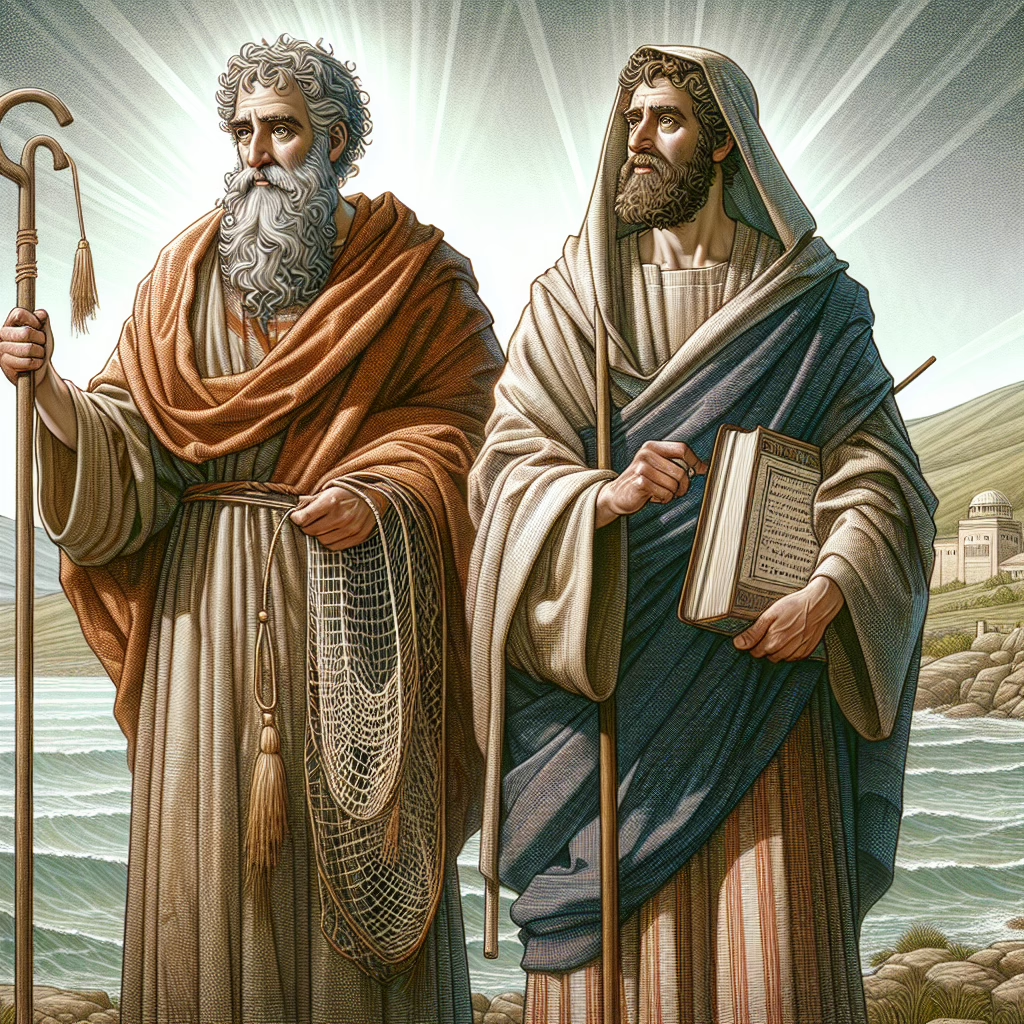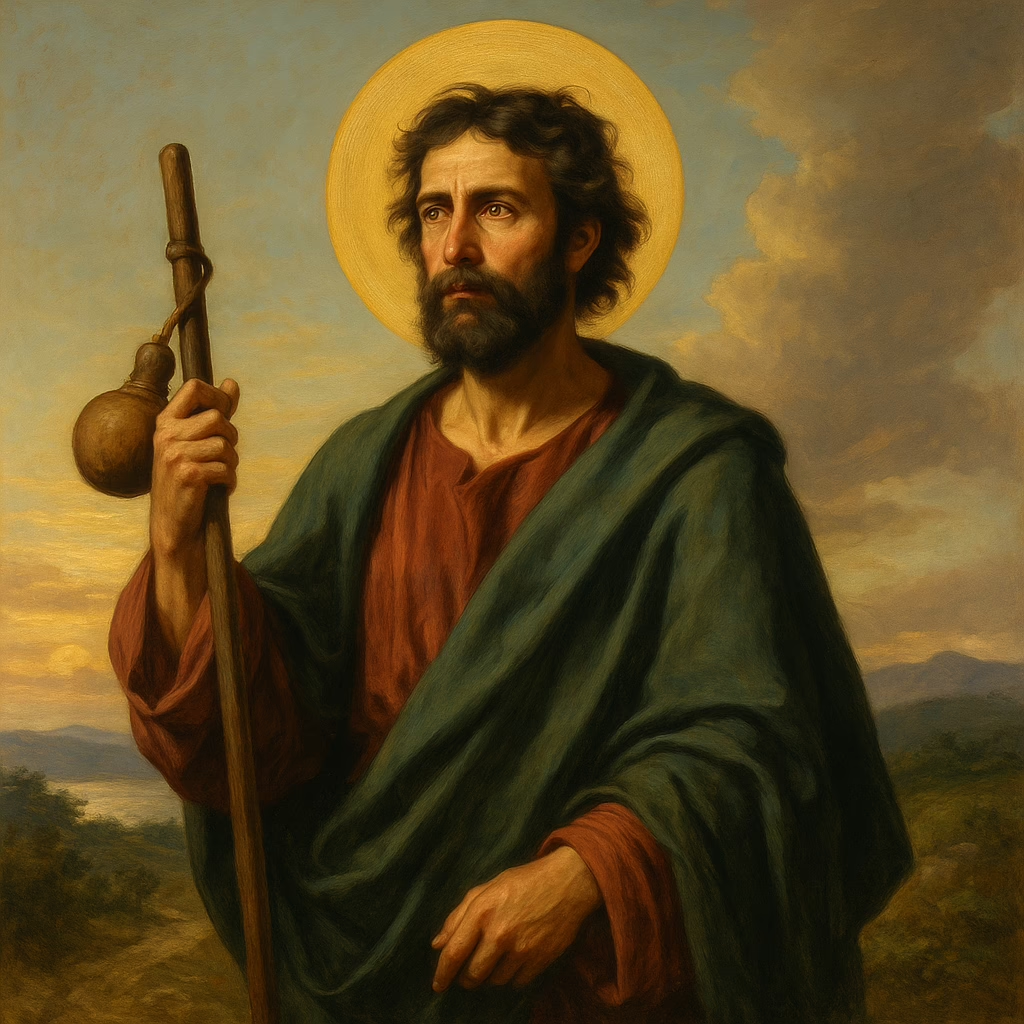Exploring the Lives of Sts. Philip and James, Apostles: Exemplars of Faith and Evangelization
Introduction: Meeting the Apostles Philip and James
“A man of faith can change the world through love and witness,” is a sentiment that encapsulates the missions of both St. Philip and St. James. These apostles form an integral part of the early Christian Church, revered for their fervent dedication to spreading the Gospel and their profound spiritual leadership. In Catholic tradition, St. Philip and St. James, Apostles, serve not only as historical figures but as timeless exemplars of Christian virtues. This blog post will delve into their lives, teachings, and pivotal contributions to early Christianity.
1. Life and Historical Context
1.1 Background of St. Philip
From the village of Bethsaida, near the Sea of Galilee, St. Philip hailed from a region entwined with early Christian narratives. Likely influenced by the teaching of John the Baptist, Philip's path crossed with Jesus, altering both his destiny and the destiny of those he touched. As part of a humble fishing family, potentially related to Simon Peter and Andrew, Philip embraced his role as an apostle with humility and earnestness. His role in initiating evangelization cannot be overstated—Philip's practical nature and willingness to follow Christ's call paved the way for countless others to encounter the Gospel.
1.2 Background of St. James
Unlike Philip, St. James, known also as James the Less, emerges from the pages of history as a figure of austerity and spiritual focus. The son of Alphaeus, James is distinct from his apostolic namesake, James the son of Zebedee. He became known for his rigorous ascetic life and unyielding dedication to prayer—forms of devotion that solidified his role as a spiritual leader in Jerusalem, which you can further explore in historical texts. As the first bishop in Jerusalem, his leadership during tumultuous times marked a cornerstone for the early Church’s development.
2. Key Events and Miracles
2.1 Miracles and Contributions of St. Philip
St. Philip's journey is punctuated by moments of divine insight and evangelistic fervor. One key event, the Calling of Nathanael, highlights his ability to steer others towards Christ with a simple invitation: “Come and see.” This act of personal evangelization is a reminder of the power of a personal encounter with Jesus.
Philip’s skepticism during the Feeding of the Multitude, where he questioned the ability to feed thousands with scant resources, sets the stage for Jesus’ miraculous multiplication of loaves and fishes. This episode underscores Philip's role in early evangelization and the powerful intersection of practical faith with divine intervention.
2.2 Leadership and Martyrdom of St. James
St. James’s influence is notably significant through his role as the first bishop of Jerusalem, a place where the Christian faith took root amid trials. During the pivotal First Council, James helped bridge the gaps between Jewish tradition and the burgeoning Christian community. His leadership is further chronicled in the Acts of the Apostles, serving as testament to his unwavering commitment.
His ascetic practices reflect an intense devotion to prayer, drawing him ever closer to God—a devotion he retained until his martyrdom, when he was thrown from the Temple pinnacle. This act of faithfulness remains a potent symbol of the cost of discipleship.
3. Lessons and Teachings from Their Lives
3.1 Faith and Evangelization
Philip’s invitation, “Come and see,” serves as a timeless model for evangelization, urging believers today to lead others to Christ through personal witness and relational evangelism. Reflecting Philip's example, practical steps for personal evangelization include authenticity in action and simplicity in invitation, demonstrating the beauty and truth of the Gospel.
3.2 The Value of Practical Faith
Both apostles exemplify the fusion of faith with tangible action. Philip’s interactions highlight the necessity of balancing spiritual belief with everyday practicality—a balance critical for navigating contemporary challenges.
3.3 Asceticism and the Inner Life of Prayer
James offers an invitation to deeper spiritual commitment through ascetic practices and prayer. His connection with God was solidified through rigorous devotion, showing modern believers the pathway to spiritual depth through committed prayer.
4. Prayers and Devotions to Sts. Philip and James
4.1 Traditional Prayers
To bring heaven closer, Catholics often invoke the saints' intercessory power. A prayer to St. Philip might read: “St. Philip, guide us as we invite others to encounter Christ with open hearts and minds.” Similarly, a prayer to St. James could include: “St. James, help us embody the faithfulness that marked your life and encourage us in prayerful devotion.”
4.2 Devotional Practices
- Daily Reflection and Scripture Meditation: Engage daily with the scriptures concerning Philip and James to enrich spiritual understanding and bolster faith.
- Service and Charity: Embracing practical faith through acts of service—echoing Philip’s concerned compassion for the multitudes—can transform personal spirituality.
4.3 Contemporary Considerations
Incorporating the apostles’ teachings into modern life is essential. Through service, retreats, and meditation, believers can reflect Philip’s practical faith and James’s contemplative devotion, renewing their spiritual journey.
Conclusion: Emulating the Faith of Sts. Philip and James
The lives of Sts. Philip and James serve as a clarion call to live out our faith actively and authentically. They remind us of the contemporary relevance of the apostles' teachings—calling us to deepen our spirituality and practice what we preach. As St. Philip and St. James, Apostles, demonstrated, true faith is lived through action and prayer, embodied in daily interactions, and heralded in every work of the Gospel.
I encourage you to delve deeper into their teachings, engaging in practices that foster faith and draw closer to the divine. Explore further the lives of other apostolic saints and their significant roles in Christianity. Your journey could lead to transformative insights and spiritual growth.
For further reading, consider these engaging books:
Let us reflect on their examples, aspire to their holiness, and live out their legacy in our own unique ways. Amen.





